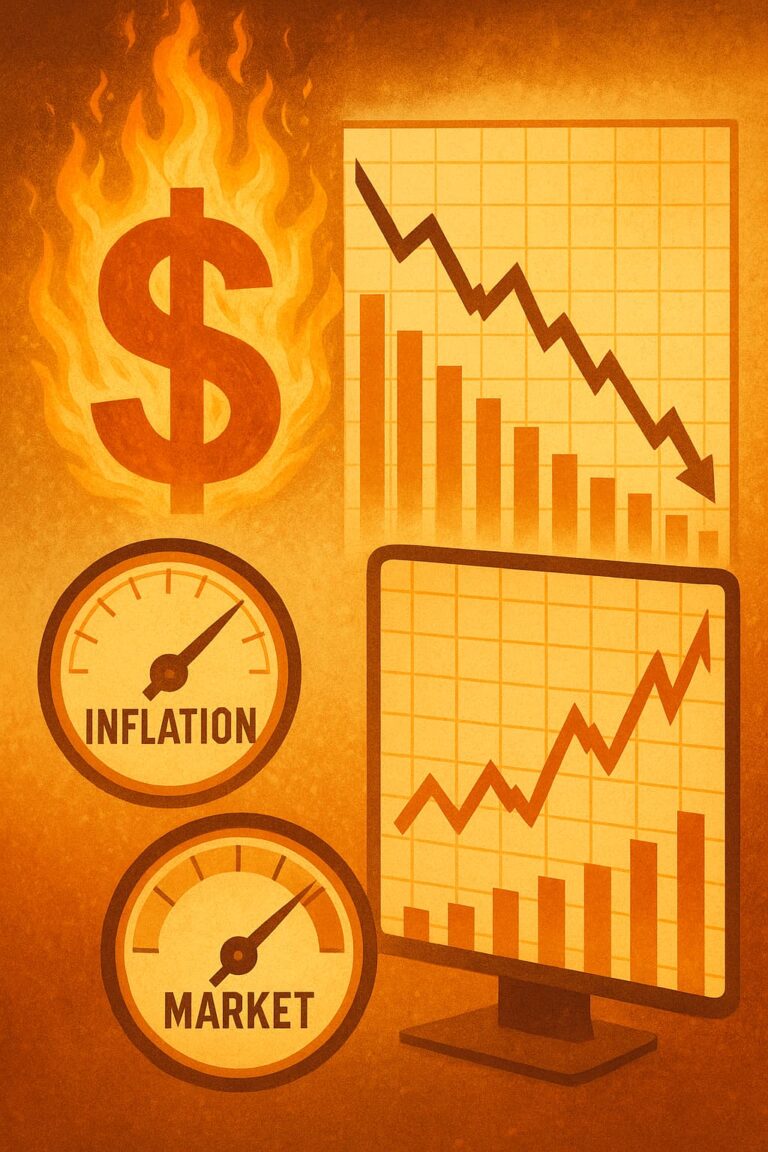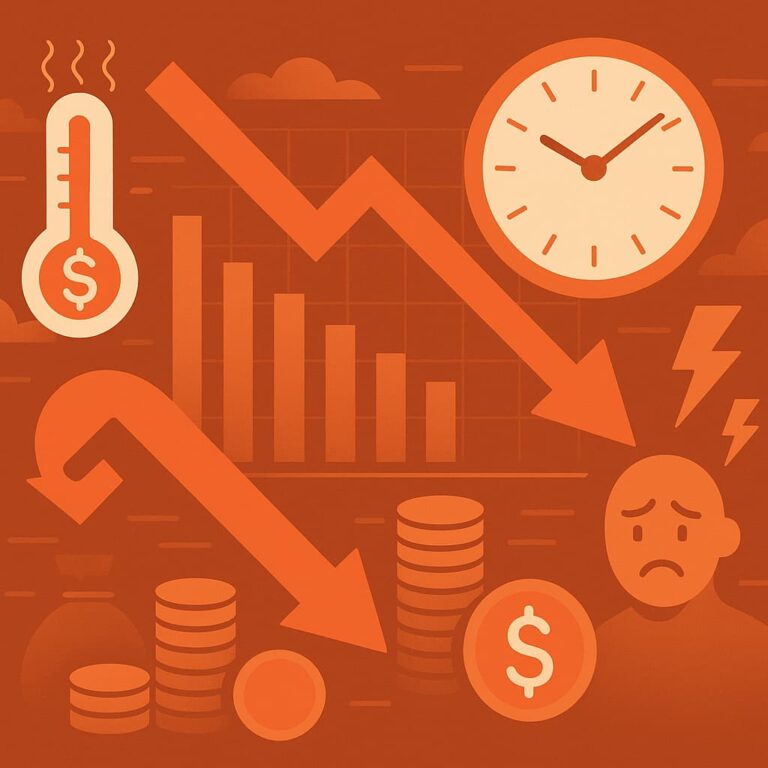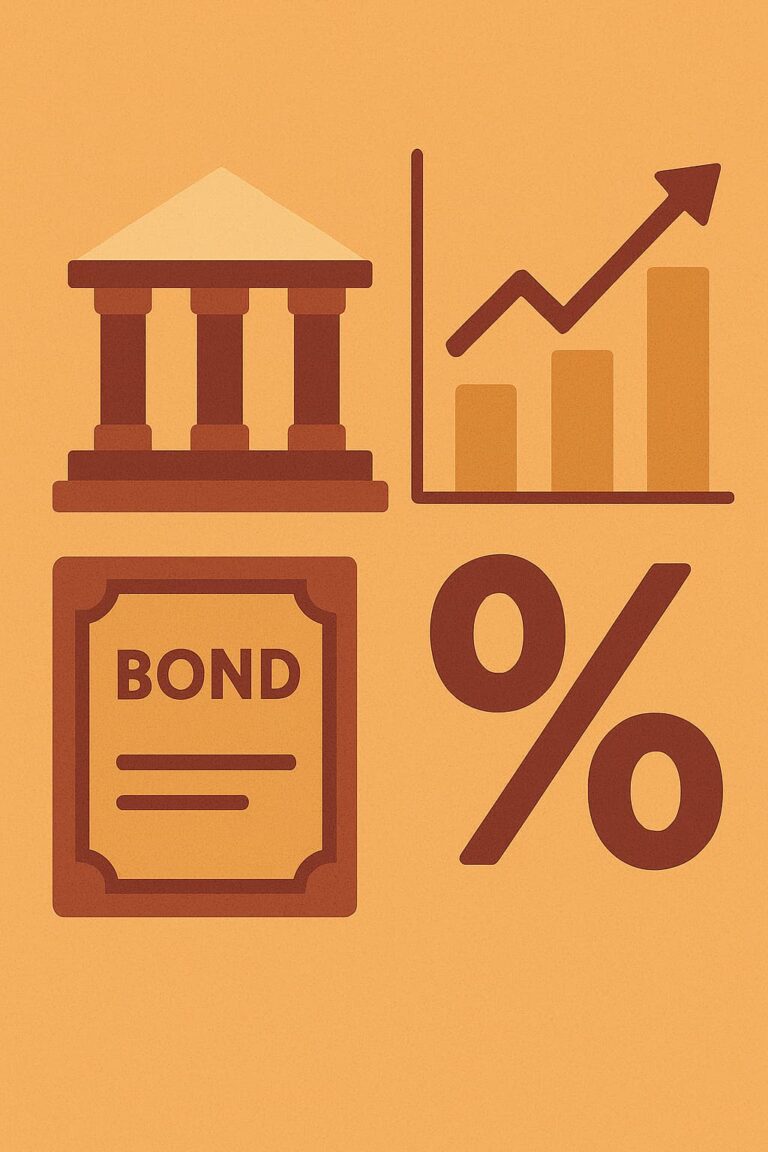في عالم مليء بالتوترات السياسية والحروب والشكوك الدولية, سلعتان تحتلان دائمًا مركز الصدارة: النفط والذهب.
في حين أنها تخدم أغراض مختلفة إلى حد كبير-اقتصادات القوى النفطيةو الذهب يحافظ على الثروة-كلاهما يستجيب بشكل كبير عندما تصبح الأوضاع الجيوسياسية فوضوية. إن فهم كيف ولماذا يمكن أن يساعد المستثمرين على حماية محافظهم الاستثمارية بل وحتى تنمية محافظهم الاستثمارية في أوقات عدم الاستقرار العالمي.
دعونا نستكشف كيف تتفاعل هاتان السلعتان القويتان مع المخاطر الجيوسياسية، وما يعنيه ذلك بالنسبة لك كمستثمر.
ما هي المخاطر الجيوسياسية؟
المخاطر الجيوسياسية يشير إلى احتمال أن تؤدي الأحداث السياسية - مثل الحرب أو الإرهاب أو العقوبات أو التوترات الدبلوماسية - إلى تعطيل الأسواق والتجارة الدولية.
تشمل أمثلة الأحداث الجيوسياسية ما يلي:
- الحرب بين روسيا وأوكرانيا
- التوترات التجارية بين الولايات المتحدة والصين
- صراعات الشرق الأوسط (إسرائيل-إيران، وحصار النفط)
- العقوبات الاقتصادية (على إيران وفنزويلا وروسيا)
هذه الأوضاع يمكن أن تهز الثقة في الأسواق وتعطل سلاسل التوريد - خاصة بالنسبة للسلع التي حرجة أو نادرة.
لماذا يتأثر النفط بالتوترات الجيوسياسية؟
1. الاعتماد العالمي على النفط
النفط هو الموارد الحرجة. فهو يغذي وسائل النقل، ويشغل الصناعات، ويدعم التجارة العالمية.
عندما تصبح المناطق الرئيسية المنتجة للنفط غير مستقرة - مثل الشرق الأوسط، أو روسيا، أو فنزويلا—investors fear supply disruptions, which can send oil prices soaring.
2. تأثير أوبك
تسيطر منظمة البلدان المصدرة للبترول (أوبك)، وخاصة المملكة العربية السعودية، على حصة كبيرة من إمدادات النفط العالمية.
- عندما تقوم منظمة الأوبك خفض الإنتاج استجابةً لعدم الاستقرار أو المصالح الاستراتيجية، عادةً ما ترتفع الأسعار.
- إذا كانت دول الأوبك المتورطين في النزاع، يتفاعل السوق مع كل من التهديدات الحقيقية والمتصورة للعرض.
3. سيكولوجية السوق
حتى لو لم تتعطل الإمدادات الفعلية، فغالبًا ما يقوم تجار النفط السعر في المخاطرة. يمكن أن يؤدي تهديد تدفق النفط عبر مضيق هرمز أو الاضطرابات في العراق إلى ارتفاع الأسعار ببساطة بسبب عدم اليقين.
مثال حديث الحرب الروسية-الأوكرانية
عندما اجتاحت روسيا أوكرانيا في عام 2022، ارتفعت أسعار النفط العالمية بسبب:
- العقوبات المفروضة على صادرات النفط الروسية
- مخاوف من تعطل إمدادات الطاقة الأوروبية
- عدم اليقين في لوجستيات التجارة العالمية
ارتفع سعر نفط خام برنت إلى أكثر من 1 تيرابايت 4 تيرابايت 120 للبرميل خلال ذروة الأزمة، قبل أن يستقر مع تكيف الأسواق.
كيف يتفاعل الذهب مع المخاطر الجيوسياسية
على عكس النفط، لا يُستخدم الذهب في تشغيل الاقتصادات - ولكنه يلعب دورًا لا يقل أهمية في سيكولوجية المستثمر و الدفاع عن العملة.
1. الذهب كملاذ آمن
عندما ترتفع المخاطر السياسية يصبح الذهب مخزنًا للقيمة. المستثمرون يهربون من الأصول ذات المخاطر العالية (مثل الأسهم) ويضعون رؤوس أموالهم في الذهب من أجل الاستقرار.
تاريخيًا، كانت أسعار الذهب الزيادة خلال:
- الحروب أو التوترات العسكرية
- تخفيض قيمة العملة
- انهيار السوق العالمية
2. التحوط من العملات
يتم تسعير الذهب بالدولار الأمريكي، لذلك عندما يضعف الدولار (غالبًا بسبب الأخطاء السياسية أو المخاوف من التضخم)، يصبح الذهب أكثر جاذبية.
3. الشراء من البنك المركزي
في الأوقات المضطربة، حتى الحكومات تلجأ إلى الذهب. قد تلجأ البنوك المركزية إلى زيادة احتياطي الذهب للحماية من العقوبات الاقتصادية أو لتقليل الاعتماد على الدولار.
مثال تاريخي: هجمات 11 سبتمبر الإرهابية (2001)
بعد هجمات 11 سبتمبر في الولايات المتحدة:
- انهيار أسواق الأسهم
- فرّ المستثمرون إلى الذهب
- ارتفاع أسعار الذهب سريعًا مع انتشار الخوف في الأسواق العالمية
حدثت ارتفاعات مماثلة في الأسعار خلال:
- حرب الخليج (1990)
- الأزمة المالية لعام 2008
- تفشي فيروس كوفيد-19 (المراحل الأولية)
مقارنة النفط والذهب أثناء الأزمات
| نوع الأزمة | تفاعل الزيت | تفاعل الذهب |
|---|---|---|
| الحرب في المناطق الغنية بالنفط | ارتفاع الأسعار (مخاطر العرض) | ارتفاع الأسعار (الملاذ الآمن) |
| الأزمة المالية | انخفاض الأسعار (انخفاض الطلب) | ارتفاع الأسعار (الملاذ الآمن) |
| أزمة العملة | يمكن أن تختلف | ارتفاع الأسعار (التحوط ضد الدولار) |
| الهجمات الإرهابية | ارتفاع قصير الأجل | ارتفاع الأسعار |
توقعات عام 2025: نقاط المراقبة الجيوسياسية الرئيسية
وبالنظر إلى المستقبل، قد تؤثر هذه القضايا العالمية على النفط والذهب:
1. التوترات في الشرق الأوسط
- أي تصعيد بين إسرائيل وإيرانأو الاضطرابات بالقرب من مضيق هرمزقد يؤدي إلى ارتفاع أسعار النفط.
- ومن المُحتمل أن يرتفع الذهب أيضًا باعتباره ملاذًا آمنًا.
2. العلاقات بين الولايات المتحدة والصين
- يمكن أن تؤدي العقوبات التجارية أو التوترات العسكرية (على سبيل المثال، بشأن تايوان) إلى تعطيل سلاسل التوريد العالمية.
- قد يستفيد الذهب من حالة عدم اليقين العالمية، بينما تتفاعل أسواق النفط بناءً على الطلب على التجارة والطاقة.
3. روسيا وأوروبا الشرقية
- قد يؤدي استمرار حالة عدم الاستقرار إلى إبقاء أسعار النفط والذهب عند مستوى منخفض، خاصةً إذا تم تشديد العقوبات.
كيف يمكن للمستثمرين الاستجابة
1. التنويع بين فئات الأصول
الاحتفاظ بمزيج من الأسهم والسندات والسلع والنقدية يساعد على تقليل التعرض للصدمات الجيوسياسية.
2. ضع في اعتبارك صناديق المؤشرات المتداولة للسلع
ليس عليك شراء براميل النفط أو سبائك الذهب. ضع في اعتبارك:
- GLD - أسهم الذهب SPDR
- USO - صندوق نفط الولايات المتحدة الأمريكية
- GDX - صندوق المؤشرات المتداولة لعمال مناجم الذهب
3. مشاهدة التضخم
يمكن لكل من النفط والذهب أن يغذي التضخم أو يتحوط منه:
- يؤدي ارتفاع أسعار النفط إلى زيادة تكاليف المدخلات، مما يزيد من التضخم.
- غالبًا ما يُنظر إلى الذهب على أنه التحوط ضد التضخم.
4. انتبه إلى البنوك المركزية
غالبًا ما تدفع المخاطر الجيوسياسية البنوك المركزية إلى تعديل المعدلات أو التدخل—actions that ripple into commodity markets.
الأفكار النهائية
النفط والذهب هما نبض التوتر الجيوسياسي. في حين يعكس النفط مخاطر العرض والاستقرار الاقتصادي، يعكس الذهب الخوف وعدم اليقين وحماية الثروة على المدى الطويل.
وسواء كنت مستثمرًا على المدى الطويل أو مجرد مراقب من على الهامش، فإن مراقبة هاتين السلعتين يمكن أن تساعدك:
- قراءة المزاج العالمي
- اتخذ خيارات محفظة أكثر ذكاءً
- فهم كيفية تصادم السياسة والأسواق
قد لا تكون قادرًا على التنبؤ بالأزمة التالية، ولكن يمكنك الاستعداد لكيفية رد فعل الأسواق.





